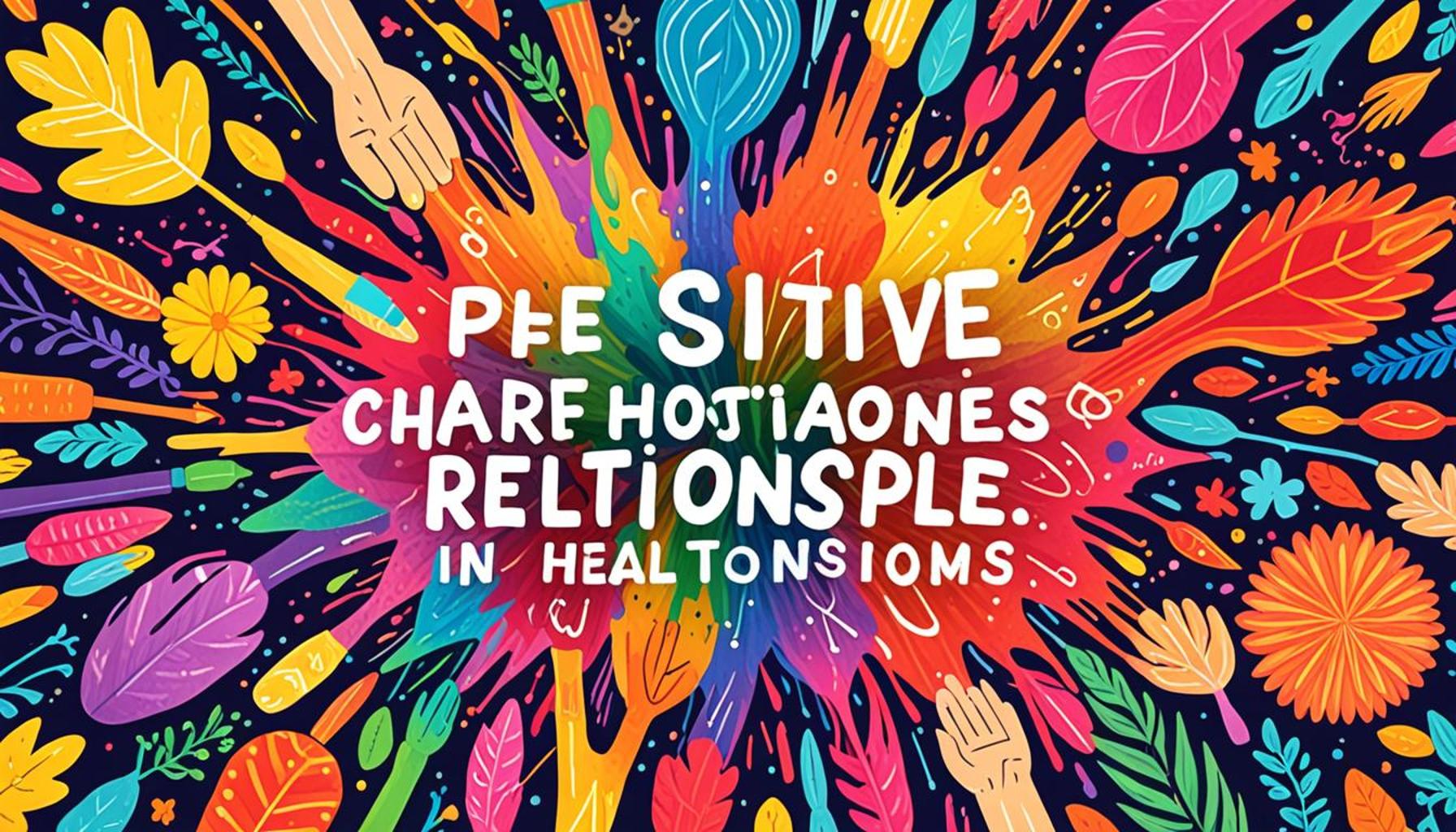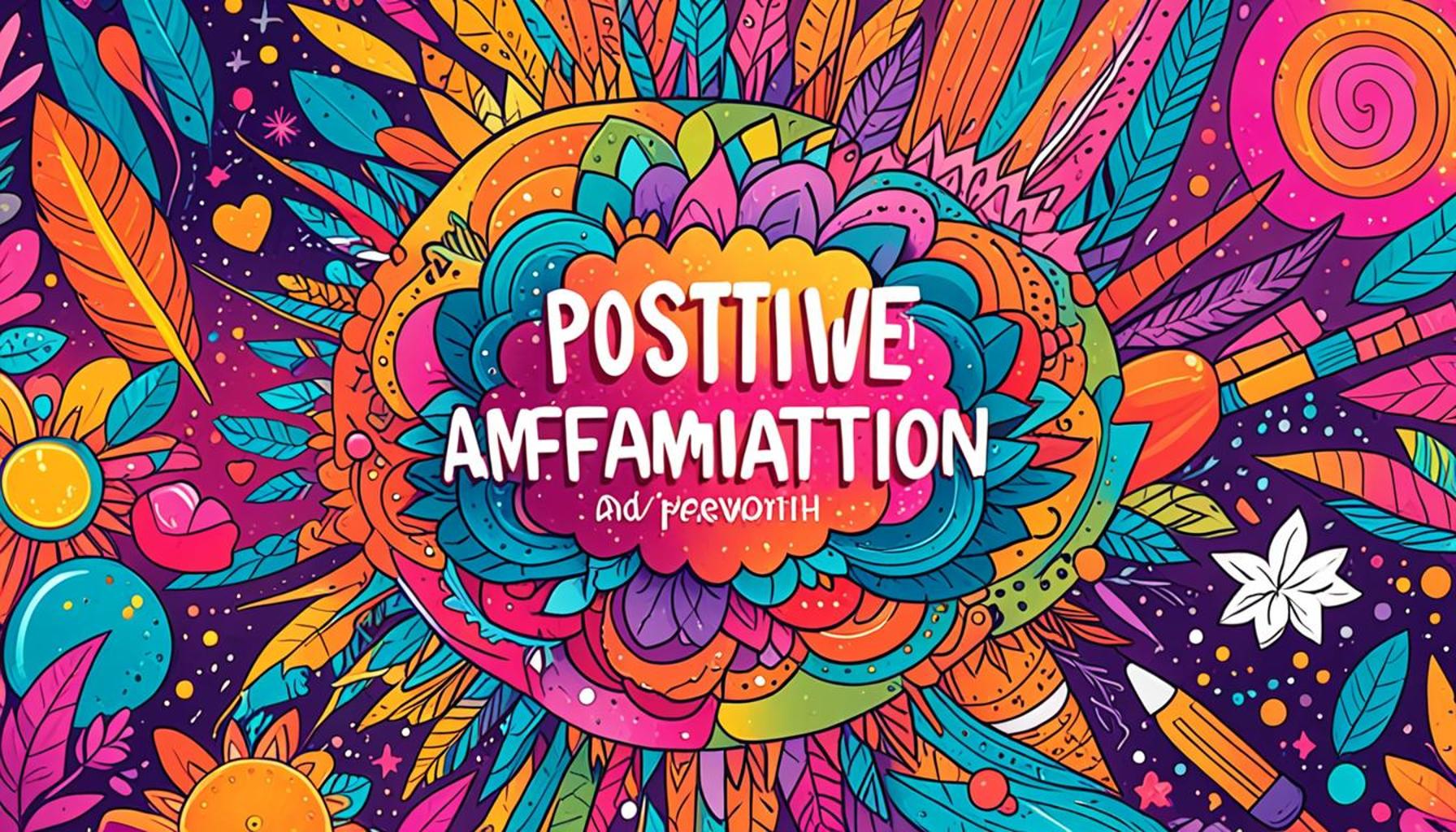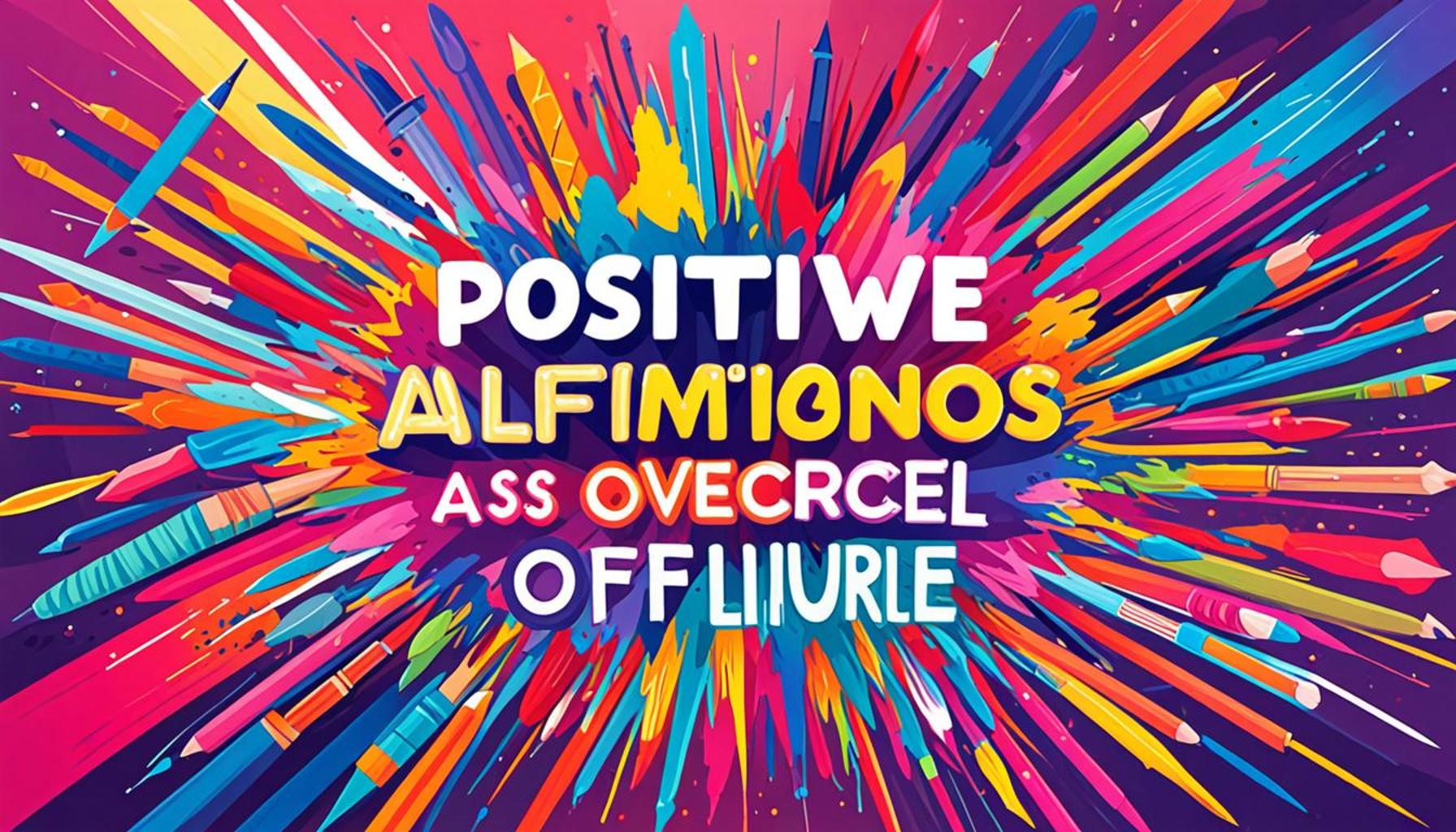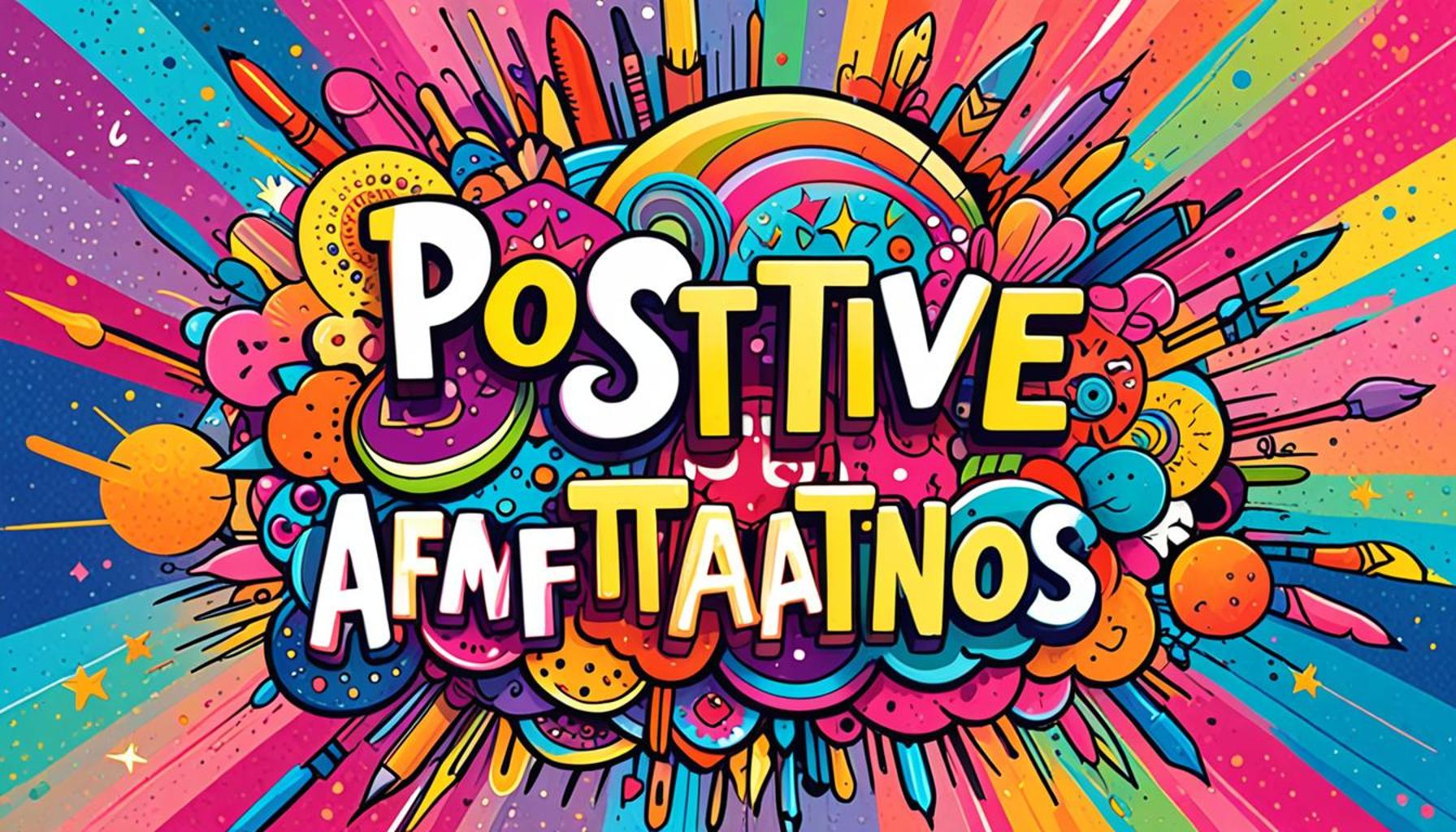The Influence of Positive Affirmations on Building Healthy Relationships

The Transformative Power of Words in Relationships
In an era marked by rapid change and increasing stress, the dynamics of human relationships are often put to the test. The use of positive affirmations emerges as a powerful tool, fostering healthier connections and enhancing the fabric of society. These affirmations do not merely uplift the individual; they create a cascading effect that strengthens relationships within families, friendships, and communities.
Research underscores the profound impact of language on our emotional well-being. Positive affirmations can lead to:
- Enhanced self-esteem and confidence: Affirmations help individuals recognize their inherent worth. When a person hears phrases like “You are capable” or “You are enough,” it can break down self-doubts and instill confidence.
- Improved communication skills: By encouraging open dialogue through positive expressions, individuals can articulate their feelings better and resolve conflicts more effectively.
- Greater empathy and understanding: Affirmations foster a culture of listening and validation, making it easier for people to empathize with one another’s experiences.
In Nigeria, a nation rich in diverse cultures and traditions, the importance of relationships cannot be overstated. Consider a typical family gathering where members express gratitude and appreciation for one another through affirmations. Such moments not only strengthen familial ties but also extend to community interactions, fostering unity in a society where communal living is valued. For instance, during festive celebrations or communal events, the practice of affirming one another’s efforts can mitigate conflicts and promote a supportive atmosphere.
We see practices such as communal prayers and expressions of gratitude, which emphasize collective strength. Utilizing positive affirmations could enhance these traditions, embedding further layers of appreciation and respect into everyday interactions.
The psychological benefits of incorporating affirmations into daily life are significant. When individuals share words of encouragement, they cultivate a nurturing environment. This positive reinforcement not only boosts morale but also reinforces social bonds, leading to stronger, more resilient relationships.

As we explore the methodology of integrating positive affirmations into our daily routines, it becomes clear that this practice is not just beneficial for individuals; it is a vital component for nurturing enduring connections with those around us. The journey into the realm of positive affirmations holds the promise of transforming our interactions and enriching the communities we belong to.
CHECK OUT: Click here to explore more
Understanding the Mechanisms of Positive Affirmations in Relationships
The journey toward building healthy relationships often begins with the way we communicate, both with ourselves and with others. Positive affirmations serve as a cornerstone in this communication, shaping perceptions and interactions. By embedding affirmations into everyday conversations, individuals lay the groundwork for deeper emotional connections and mutual respect.
At the heart of the practice is the concept of self-empowerment. When individuals engage in positive self-talk, they are not merely changing their mindset; they are also altering the energy they project onto others. This shift can create an environment ripe for trust and openness, where each party feels valued and heard. For example, within Nigerian social structures, mutual expressions of affirmation play a crucial role in fostering respect among peers and family members.
Consider a scenario where a child receives a simple but powerful affirmation such as, “You make us proud,” from parents or guardians. This statement not only elevates the child’s self-esteem but also reinforces familial bonds. Similarly, in a workplace, a colleague who acknowledges another’s efforts with affirmations like “Your contributions are invaluable” can significantly boost morale and collaboration.
The Role of Affirmations in Conflict Resolution
Every relationship faces challenges, and conflicts are natural. However, how parties navigate these disputes can determine the strength of their connection. Positive affirmations have been shown to facilitate conflict resolution in several ways:
- Creating a Safe Space: When individuals use affirmations during disagreements, they set a tone of respect that encourages calm discussions rather than heated arguments.
- Promoting Active Listening: By affirming each other’s feelings or viewpoints, individuals demonstrate they value the other person’s perspective, which is key in resolving misunderstandings.
- Building a Collaborative Atmosphere: Affirmations can shift the focus from blame to solutions, empowering both parties to work together towards a resolution.
Additionally, the cultural context in Nigeria enriches the practice of using positive affirmations. Traditional practices, such as storytelling during family gatherings, often emphasize affirming virtues and achievements. These narratives not only build self-identity but also play a significant role in social cohesion. By intertwining affirmations into these cultural practices, communities can enhance the sense of belonging and interconnectedness.
In observing the benefits of positive affirmations, it becomes apparent that they are not merely whimsical phrases but powerful elements that can redefine how individuals interact within various spheres of life. These affirmations usher in a transformative impact, promoting healthy relationships characterized by support, understanding, and resilience.
| Advantages | Impact on Relationships |
|---|---|
| Enhances Self-Esteem | Positive affirmations foster self-worth, making individuals more confident in their interactions. |
| Improves Communication | By promoting a positive mindset, affirmations lead to clearer and more effective dialogues between partners. |
| Builds Trust | Consistent positive reinforcement allows partners to feel secure, establishing a solid foundation for trust. |
| Encourages Empathy | Affirmations help cultivate understanding and compassion, essential ingredients for healthy relationships. |
Positive affirmations play a crucial role in shaping how individuals perceive themselves and their connections with others. By embracing and repeating encouraging statements, one can significantly transform their mental landscape, which is at the heart of nurturing relationships. This transformative power lies in every word and thought reinforced through the practice of affirmations, which not only impact self-esteem but also ripple out to affect interpersonal dynamics.Moreover, the benefits extend beyond personal growth; they reshape the way individuals communicate with their partners, leading to more meaningful exchanges and stronger emotional bonds. Building trust becomes feasible as individuals who indulge in positive self-talk inherently project that positivity onto their interactions, creating nurturing environments wherein honesty flourishes. As we delve deeper into the mechanics of these affirmations, the profound connection between personal affirmation practices and healthy, thriving relationships becomes undeniably clear. Each affirmation not only uplifts the individual but also serves as a building block for deeper connection and understanding within partnerships.
YOU MAY ALSO LIKE: Read read another article
Positive Affirmations as Tools for Strengthening Emotional Bonds
While the role of positive affirmations in conflict resolution is critical, their influence extends further into the terrain of emotional bonding, shaping how individuals perceive themselves and one another within relationships. Affirmations serve as bridges that connect individuals on a deeper level, fostering emotional intimacy and understanding.
The concept of emotional vulnerability is vital in forging meaningful relationships. Positive affirmations create a safe environment where individuals feel secure enough to express their feelings without fear of judgment. For instance, in close friendships, a simple message like, “I appreciate you for who you are,” can help establish an open dialogue about insecurities or challenges, reinforcing trust and camaraderie. This is especially relevant within the context of Nigerian communities where communal support is paramount, and acknowledging one another’s strengths plays a pivotal role in nurturing friendships and family ties.
Affirmations in Romantic Relationships
Romantic partnerships thrive on mutual respect and acknowledgment, making positive affirmations essential tools. Research indicates that couples who regularly affirm each other’s strengths and express gratitude tend to experience higher satisfaction levels in their relationships. Phrases like, “You bring joy into my life,” or “I admire your strength,” not only enhance emotional connections but also mitigate feelings of inadequacy or resentment.
In the Nigerian cultural milieu, where family and romantic relationships often intermingle, the healing power of affirmations takes center stage. Many couples benefit from affirming each other in local dialects or within familiar cultural contexts, thereby deepening their bond. This practice can be particularly effective during traditional ceremonies, where vows and affirmations echo the partnership’s strength and promise.
The Science Behind Affirmations and Interpersonal Relationships
From a psychological perspective, the efficacy of positive affirmations can be traced to their ability to activate the brain’s reward system. According to psychological studies, speaking positively about oneself can stimulate the release of dopamine, a neurotransmitter associated with feelings of happiness and satisfaction. This rewiring of the brain can lead to increased feelings of empathy and compassion in relationships. The ripple effect is profound—when one partner experiences elevated emotional well-being, the other often follows suit.
Moreover, incorporating daily affirmations into routine practices can significantly uplift collective morale in family structures. By collectively engaging in affirmations such as, “We support each other,” during family gatherings, members can cultivate a supportive environment where everyone feels empowered to express their thoughts and emotions. This practice can initiate a chain reaction of positivity, fortifying familial bonds that extend across generations.
Affirmative Practices in Professional Relationships
Positive affirmations are equally vital in professional settings as they influence workplace culture and collaboration. Companies that endorse a culture of recognition and positive reinforcement often see enhanced employee engagement. By saying things like, “Your ideas make a difference,” during meetings, team members feel acknowledged, fostering an atmosphere of innovation and teamwork. In a Nigerian context, where teamwork is often critical to achieving organizational goals, ensuring that affirmations are part of the corporate culture can lead to extraordinary transformation in workplace relationships.
Ultimately, engaging with positive affirmations is not merely a personal endeavor; it is a communal act that nurtures connections in various spheres. The interplay of encouragement and emotional support exemplified by positive affirmations represents a universal language that transcends boundaries, resonating deeply within Nigerian society’s rich tapestry of relationships.
ADDITIONAL INSIGHTS: Expand your understanding here
Conclusion: The Lasting Impact of Positive Affirmations on Relationships
In a world where interpersonal connections often fluctuate, the role of positive affirmations emerges as a cornerstone for building and sustaining healthy relationships. The ability to uplift one another through simple, affirming phrases not only enhances emotional bonds but also cultivates a culture of vulnerability and trust. As discussed, whether in close friendships, romantic partnerships, or professional settings, affirmations play a critical role in reinforcing self-worth and mutual respect.
The science behind these affirmations underscores their profound impact on emotional well-being. When individuals engage in acts of affirmation, they activate their brain’s reward system, fostering empathy and understanding. This mutual support creates a ripple effect that can enhance the emotional landscape of entire communities, particularly within the context of Nigerian culture, where communal values are deeply ingrained.
As families and organizations strive to create environments that prioritize well-being and positivity, the incorporation of daily affirmations serves not just to uplift individuals but to strengthen collective morale. By establishing a practice of recognizing each other’s strengths and contributions, we lay the groundwork for more resilient and fulfilling relationships.
Ultimately, the transformative power of positive affirmations extends far beyond individual interactions; it paves the way for enriched relationships that resonate across various spheres of life. By embracing this simple yet impactful practice, individuals can unlock the potential for deeper connections, leading to healthier and happier communities.


